For the last three months I have been a regular writer at Elephant Journal. I am not going to lie and say I’m getting rich. Though I’ve been among the top 7 writers (the only ones who get a guaranteed pay out) for 3 mos. in a row – the pay is crap. I mean total crap. I’ve made less than $25. an article. Some are getting paid $5. an article. Most are paid nothing. Nada. Zilch. Zip.
Most sites don’t pay writers much or at all and if they do, in exchange, they pummel readers with ads. This is not a piece about lousy pay rates and starving writers though. That is a larger topic and not at all unique to Elephant Journal. 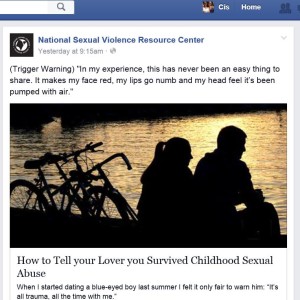
What is unique to Elephant Journal and emerging online venues is that they allow writers to express truthfully and honestly about topics often considered taboo.
Trauma. Neglect. Sexual abuse. PTSD.
This is radical, life-affirming and life-changing. Maybe even life-saving.
Life-saving is better than dollar bills.
Truth-telling is what motivates many writers. But some truths are easier to share than others.
I write most about post-traumatic stress and being a survivor of sexual violence, childhood abuse and parental abandonment.
Despite how common it is to be post-traumatically stressed high-ACE scoring adult with long-term and lifelong impact from violence and neglect, is still very little understanding of these issues and talk about these subjects.
Anywhere.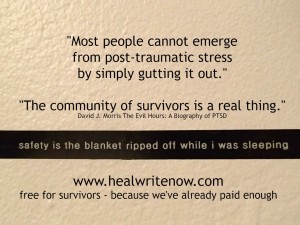
In homes or families, in publications or in doctor’s offices.
It’s still a cringe-fringe-wince topic that makes many uncomfortable.
No one thinks I’m generally happier, more employable and a better date after finding out my history. They should because I’m gritty as hell, tough as shit and can laugh at most anything.
But there’s still stigma about being out as a survivor.
I push through it because breaking silence, challenging shame and helping people feel not alone is a balm for the writer and readers and I’m both.
I am glad to have a platform to write openly and honestly.
“You should write for paying markets,” one writer said to me.
“Yeah, but I wouldn’t be able to write on these topics,” I said.
Every once in a while I write for better pay, to make sure I can. And then I return to activism because I know this: It’s dangerous to be a survivor. I almost died of silence.
I couldn’t understand as a young adult how I’d ever make love, have a family or manage post-traumatic stress. I wasn’t sure it was possible. In fact, I was sure it was impossible.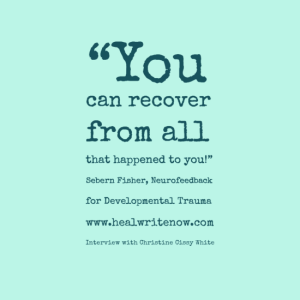
I was so damn wrong. This is something every survivor needs to know. A life is possible.
Even though society prefers we keep our traumatic experiences to ourselves – it does not help us to be quiet.
Finding people willing to publish even work done for free is not easy. I’ll take any microphone that will let me speak.
Being allowed to write about trauma, abuse, recovery and healing from various angles again and again and again is a gift for me and any other survivors out there.
It gives me and other survivors something rare:
- The ability to speak for ourselves.
- Direct access to other survivors.
This is groundbreaking.
Refreshing.
Necessary.
Rare.
We can share about the hell of kicking Klonopin or Paxil or parenting while triggered or telling a lover about family of origin.
We can talk about childbirth or menopause and what it does to anxiety or depression. We can share tips on getting through holidays.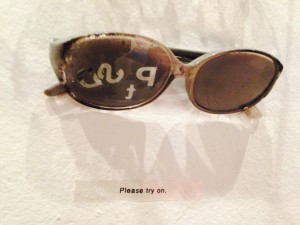
We can tell each other to go read Childhood Disrupted by Donna Jackson Nakazawa and how validating it is to know we don’t just suck at being human.
Often we don’t need solutions or fixes but just to be able to be real.
So while I don’t like struggling to pay my bills I like something else even less.
Silence. Hiding. Shame. Secrecy.
As a high-functioning trauma survivor who could “pass for normal” I often felt phony, unable to be real or relaxed or myself. Even when I made great money.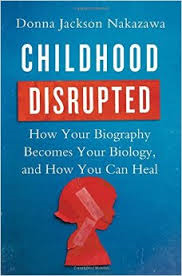
I don’t feel that way any longer.
I feel real, transparent and honest.
“Your aging backwards” my friend Kathy said yesterday. “You look better than you ever have.”
She’s not talking muscle tone, hair styles or skin care.
“I feel so inhabited” I said.
“You look unburdened” she said.
“I feel more open” I said (though I admitted to feeling scattered and too busy too). This is because of the work I’ve done but also the community I’ve found.
I don’t feel alone.
It makes me brave. I no longer write, talk or live around the edges of my truth.
I am just another human.
I used to avoid conversations about father’s because mine, if alive is alcoholic and homeless.
I used to feel unfeminist and guilty for wishing my own mother was more protective, loving, traditionally maternal – even though it was true and even as I get why that wasn’t possible for her.
I didn’t want to say what it was like to be abused by step-family even though the experience shaped me.
If I did talk I did it in therapy, where I paid someone a $100 an hour just to listen to me but honestly that’s shame based. Honestly, only someone paid is willing to listen and bear witness? What does that mean?
I talked, confessed and whispered, to therapists and in public or with family and friends, wrote and lived around my past, my feelings and my truth.
I felt outside of myself, my life and soul.
Unsafe.
Unseen.
Silence seeps life force energy. Shame prevents joy and ease and feeling honest.
But it wasn’t and isn’t always possible to be out as a survivor.
I have needed the words of others to be an umbrella that I cling to and read and hide under when I had nothing of my own to protect me.
Not because I was too afraid to speak up (though sometimes I was)- but because interpersonal violence and developmental trauma and neglect are topics people have a hard time even tolerating.
People are afraid of identifying as or with survivors even now.
Or worse. P
eople stigmatize, shame, blame or further traumatize survivors.
Developmental trauma is the curdling of life-giving milk which soured rather than nurtured our infant, toddler or child selves. We fed on pain and we survivors understand having to swallow what tasted bad and made us sick when the other option was to go hungry.
We know sometimes the choices are bad and worse.
We know we are not met with compassion all of the time. Sometimes silence is better than the alternative: Rage. Persecution. Further traumatizing.
When I think about the woman who came forward to speak about being raped or drugged by Bill Cosby I want to cry. They were belittled, attacked, questioned, doubted and disbelieved.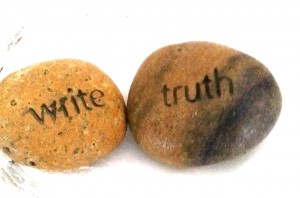
Until and only until what? Until Cosby’s own words damned him and “credited” them. Before that time, they weren’t worthy of being believed. The benefit of doubt goes to the perpetrator just about always.
Survivors know this unfair truth.
Survivors have to recover from violence but also the way we are treated and regarded in the aftermath as well. Traumatic stress is amplified rather than ameliorated upon disclosure.
It is rare to have spaces to share openly and honestly about the reality of having survived trauma, abuse or sexual violation – without having to rush in to make others feel comfortable.
It’s also medicinal, healing and groundbreaking to be honest.
The truth is that the more we are welcome to talk and share about our past reality the more joy and space we feel to inhabit the present.
When we can relate, inspire and validate one another we feel better. We make comments or up the phone and listen or get heard.
We can text: “Can you stand the Duggar case or the Cosby coverage?”
And for all of this to happen unmediated by a therapist or support group or anyone speaking for us or telling us what we need is fabulous and saves boatloads of cash.
Humans require solidarity and peer to peer knowing and sharing and relating.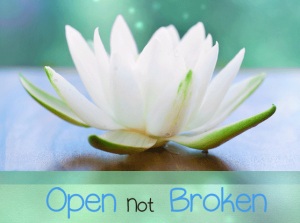
This very basic telling truth and story telling has been lacking in our family life and societal communing.
I crave more survivor community.
I learned in writing workshops with Nancy Slonim Aronie how wonderful it was to share stories and not be asked to sit at a “too triggering table” but to just share words.
It changed my life and made me feel hopeful. I realized I would not have to only work on the me I would present but just be the me I am.
There would not forever be the need to weight what or if or where it was o.k. to say what but to instead just go with the truth and deal with that. This had never seemed an option.
Not it’s my lifestyle.
As a columnist I get to share online and others feel more real and less alone too – for free.
I don’t make money but I don’t charge either.
That’s fortifying. I’m glad to be a part of this silence-breaking movement. It pays.
We are starting to find and believe in ourselves and each other.
We have incredible stories that are gripping, interesting and worthy of being told.
We are finding our survivor voices and using them.
You Matter Mantras
- Trauma sucks. You don't.
- Write to express not to impress.
- It's not trauma informed if it's not informed by trauma survivors.
- Breathing isn't optional.
You Are Invited Too & To:
- Heal Write Now on Facebook
- Parenting with ACEs at the ACEsConectionNetwork
- The #FacesOfPTSD campaign.
- When I'm not post-traumatically pissed or stressed I try to Twitter, Instagram & Pinterest.
I too am a survivor.Please know I am so grateful to have found your siteGive me time to gather my words and i will share my dealings with multiple ,reapeated neglect trauma and abuse by many people in my lifetime.My main thing that has gotten me thru so much is a hope for the future.Thanks for letting me share just that.
Lori,
Welcome to the site and I’m so glad to read your comment today but I’m sorry you have experienced so much pain. Hope and community take one a long way! I look forward to hearing more when you are ready to share!
Cissy